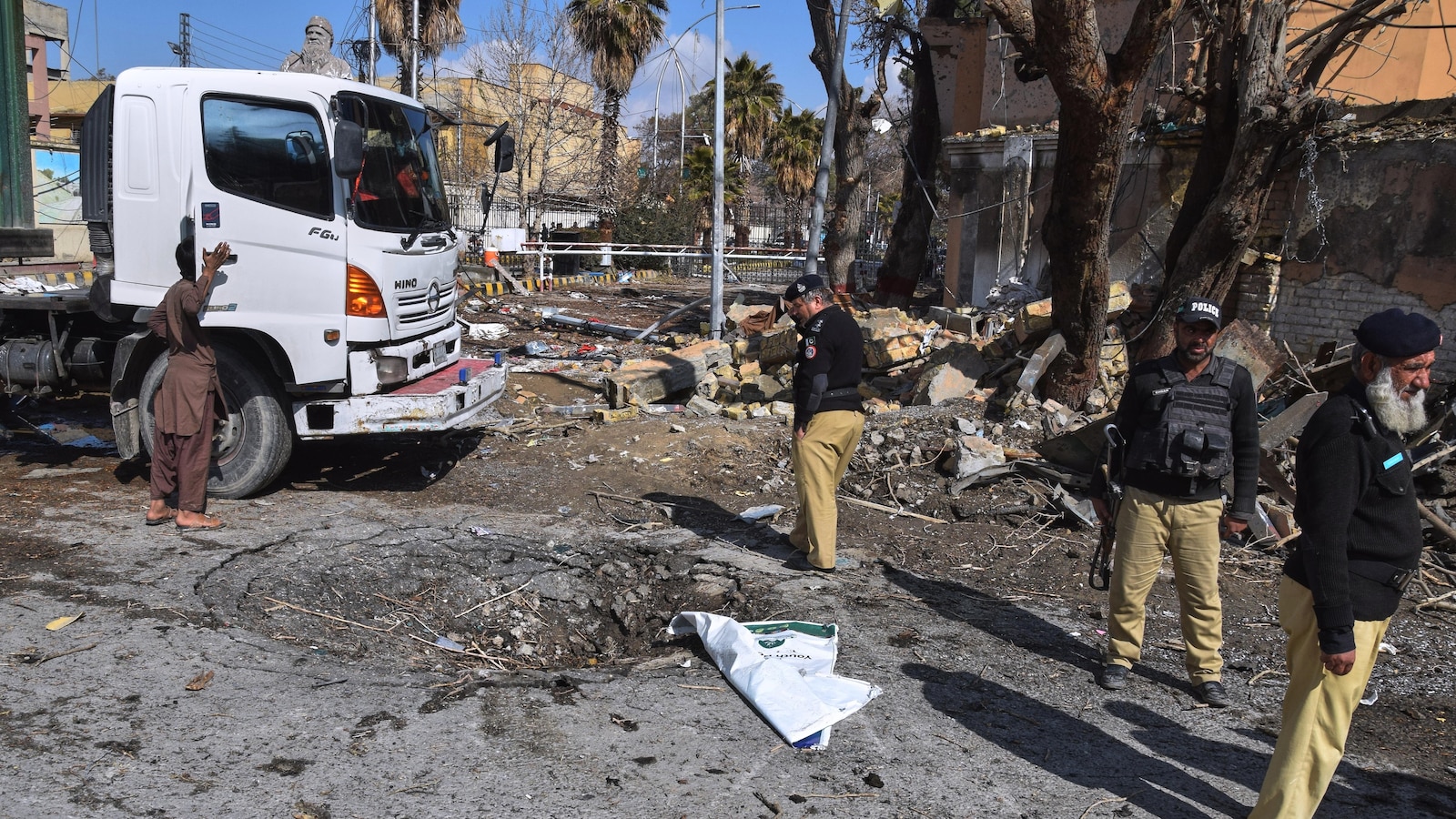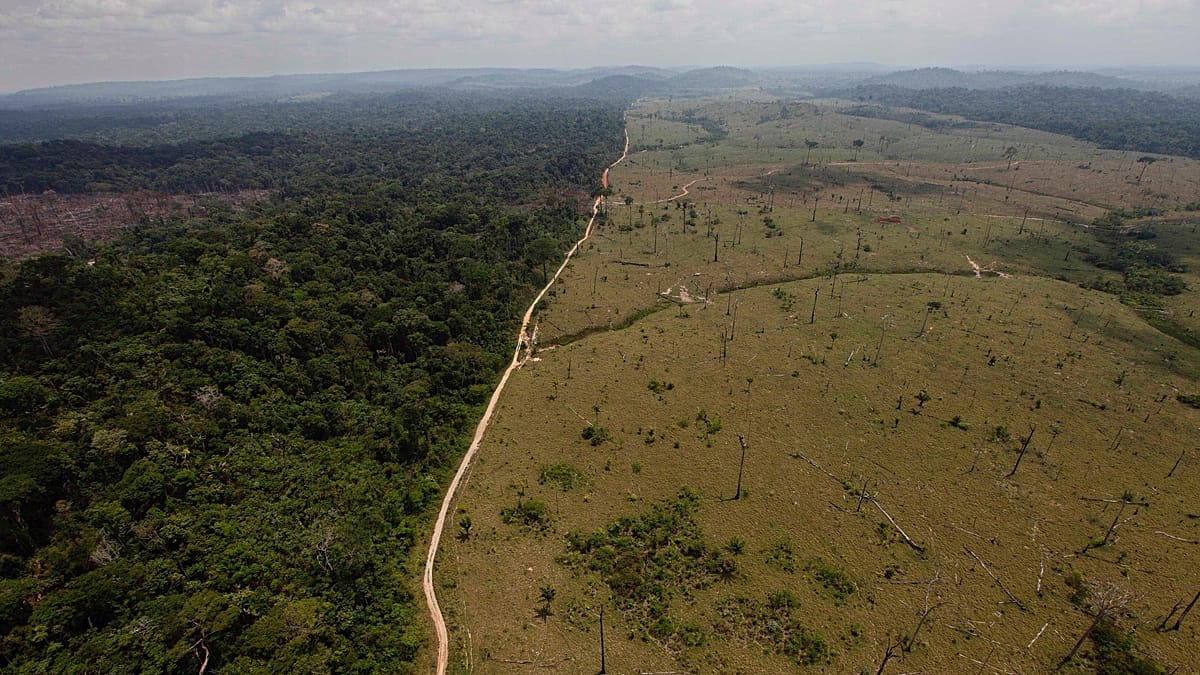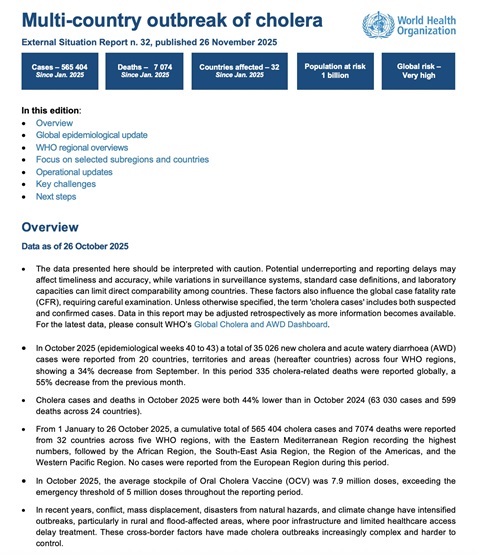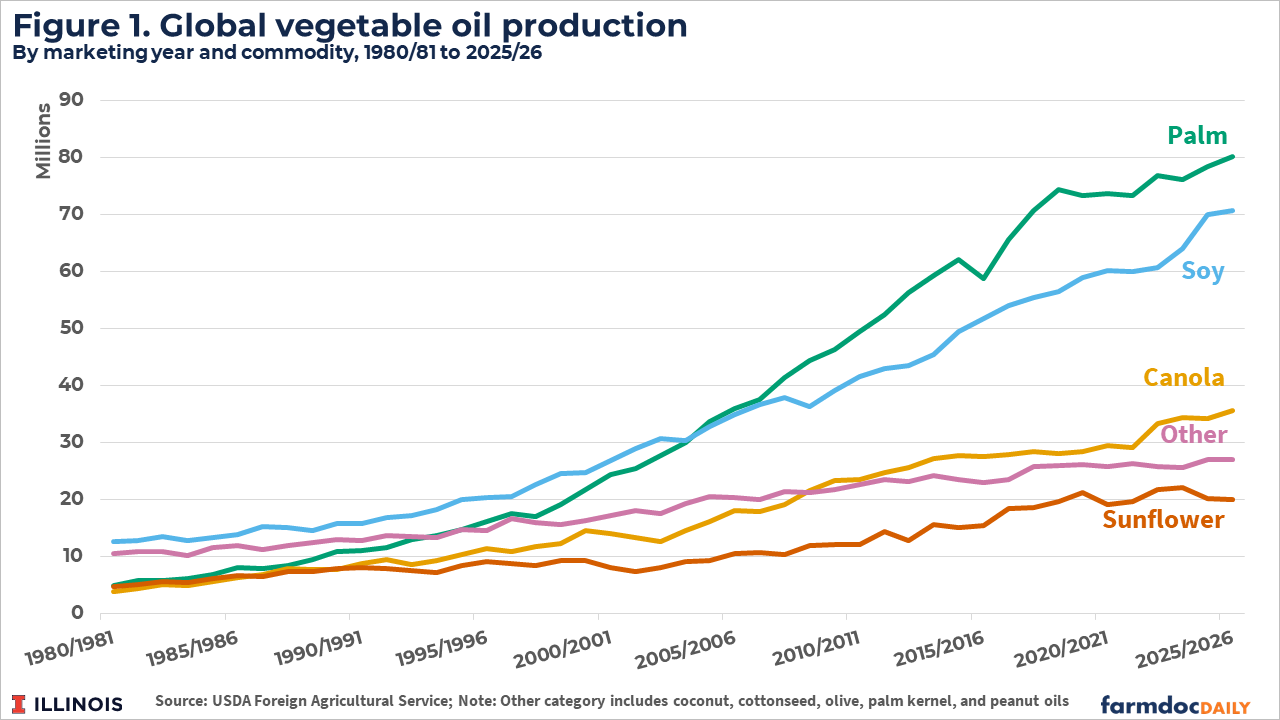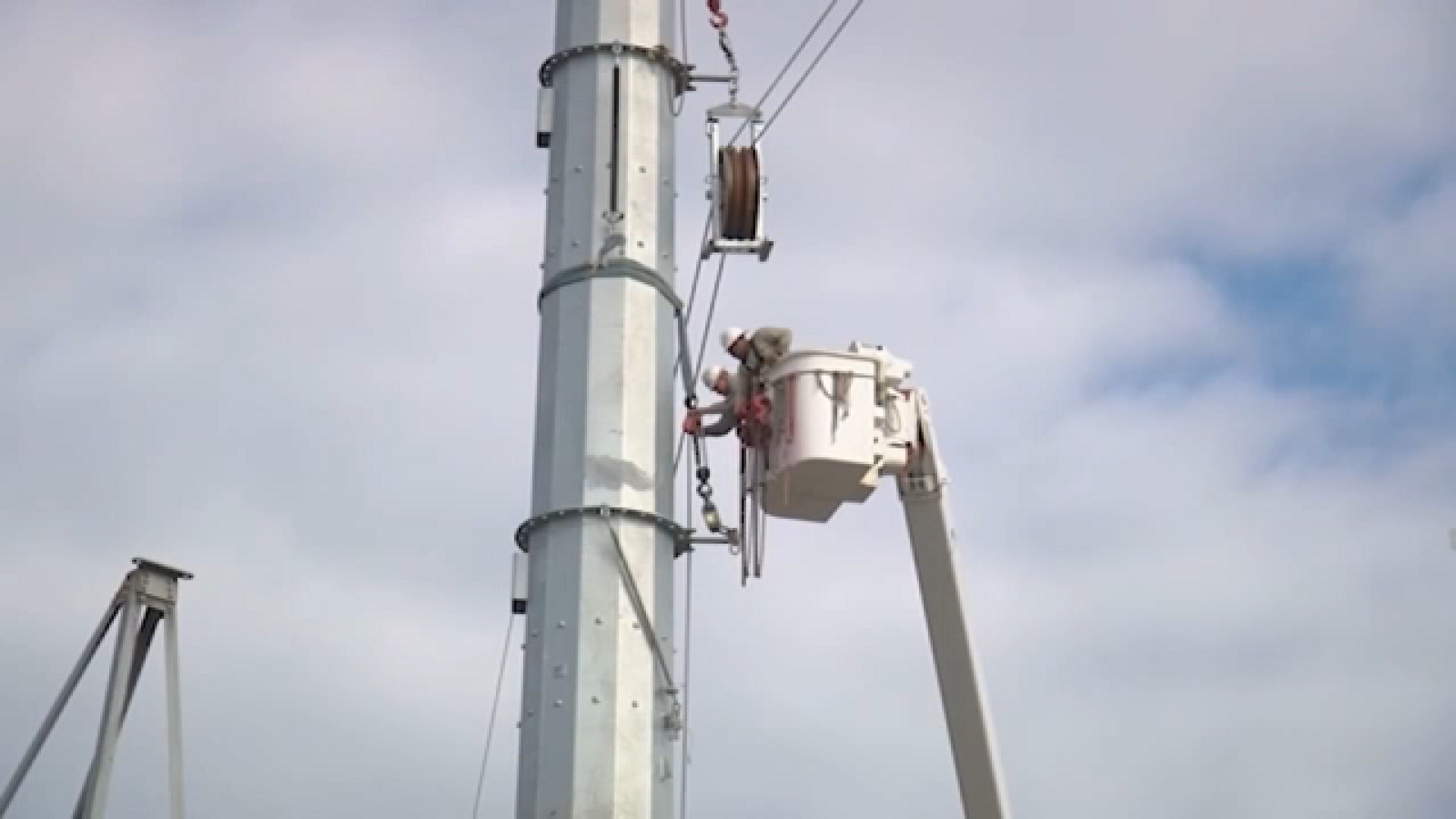Iron & Earth to Host Climate Crossroads: Pathways to Energy Equity During Canada Climate Week Xchange – TradingView

Report on Iron & Earth’s “Climate Crossroads” Event and Alignment with Sustainable Development Goals
1.0 Introduction
This report outlines the “Climate Crossroads: Pathways To Energy Equity” event, hosted by the non-profit organization Iron & Earth. The event is a component of the inaugural Canada Climate Week Xchange (CCWX) and is designed to advance key United Nations Sustainable Development Goals (SDGs) by fostering collaboration and dialogue on the transition to a clean energy economy in the Greater Toronto Area.
2.0 Event Objectives and SDG Alignment
The primary objective of the event is to build a network of stakeholders committed to renewable energy and a just economic transition. This directly supports several SDGs:
- SDG 7 (Affordable and Clean Energy): The event’s core focus is on transformations within the energy industry, promoting the shift towards renewable and clean energy sources.
- SDG 8 (Decent Work and Economic Growth): By concentrating on the future of energy jobs and providing pathways for careers in the green economy, the event promotes inclusive and sustainable economic growth and productive employment for all.
- SDG 10 (Reduced Inequalities): The theme of “Energy Equity” underscores a commitment to ensuring the benefits of the clean energy transition are distributed fairly, a central tenet of a “Just Transition.”
- SDG 13 (Climate Action): As part of a national climate week, the event serves as a platform for urgent action to combat climate change and its impacts.
- SDG 17 (Partnerships for the Goals): The event is structured to facilitate meaningful connections and collaborations among professionals, policymakers, advocates, and students, strengthening the means of implementation for sustainable development.
3.0 Organizational Mandates and Program Contributions to SDGs
3.1 Iron & Earth
Iron & Earth is a non-profit organization dedicated to supporting a Just Transition by reducing barriers to participation in the green economy. Its operational framework is explicitly aligned with the SDG implementation strategy, recognizing that the economic, social, and environmental dimensions of sustainable development are interconnected. The organization’s programs contribute to these goals as follows:
- Renewable Skills Initiative: Increases energy literacy and technical skills, contributing to SDG 4 (Quality Education) and SDG 7 (Affordable and Clean Energy).
- Prosperous Transition Campaign: An Indigenous-informed research initiative that centers local economies and knowledge, advancing SDG 10 (Reduced Inequalities).
- Community Talks: Facilitates community engagement on climate solutions and preparedness, supporting SDG 11 (Sustainable Cities and Communities).
- Climate Career Portal: A digital resource connecting individuals with green jobs and training, directly supporting SDG 8 (Decent Work and Economic Growth).
3.2 Canada Climate Week Xchange (CCWX)
CCWX is a five-year national initiative designed to bring Canadians together to collaborate on climate solutions. It functions as a key enabler of SDG 13 (Climate Action) and SDG 17 (Partnerships for the Goals) by creating a dedicated annual period for nationwide collaboration and knowledge sharing.
4.0 Event Details
- Date: November 28, 2025
- Time: 9:00 AM – 5:00 PM EST
- Format: In-Person
- Location: The Innovation Complex at the University of Toronto Mississauga, Mississauga, Ontario
Analysis of Sustainable Development Goals in the Article
1. Which SDGs are addressed or connected to the issues highlighted in the article?
The article highlights several issues and initiatives that connect directly to the following Sustainable Development Goals (SDGs):
- SDG 4: Quality Education – The focus on skills development, training, and increasing energy literacy through programs like the “Renewable Skills Initiative” and the “Climate Career Portal” directly relates to providing inclusive and equitable education and lifelong learning opportunities.
- SDG 7: Affordable and Clean Energy – The core theme of the event, “Climate Crossroads: Pathways To Energy Equity,” and the organization’s focus on renewable energy, the clean economy, and equipping communities to maintain renewable energy systems align with ensuring access to affordable, reliable, sustainable, and modern energy for all.
- SDG 8: Decent Work and Economic Growth – The article emphasizes a “Just Transition,” the “future of energy jobs,” and creating pathways for “careers in the green energy economy.” The “Climate Career Portal” connecting individuals with job openings and training supports the goal of promoting sustained, inclusive, and sustainable economic growth and decent work.
- SDG 10: Reduced Inequalities – The event’s theme of “Energy Equity” and the organization’s commitment to a “Just Transition” aim to reduce inequalities. The “Prosperous Transition Campaign,” which is an “Indigenous-informed research initiative,” specifically works towards the inclusion of Indigenous communities, a key aspect of reducing inequality.
- SDG 13: Climate Action – The entire context of the “Canada Climate Week Xchange” and community engagement sessions on “climate change, the just transition, [and] potential solutions” demonstrates a clear commitment to taking urgent action to combat climate change and its impacts.
- SDG 17: Partnerships for the Goals – The event’s objective to “facilitate meaningful connections with potential collaborators” and create a “stronger network of parties” exemplifies the spirit of partnership. The broader “Canada Climate Week Xchange” initiative itself is designed to bring diverse organizations and individuals together to collaborate on solutions.
2. What specific targets under those SDGs can be identified based on the article’s content?
Based on the activities and goals described in the article, the following specific SDG targets can be identified:
- Target 4.4: By 2030, substantially increase the number of youth and adults who have relevant skills, including technical and vocational skills, for employment, decent jobs and entrepreneurship.
- Explanation: The “Renewable Skills Initiative” and the “Climate Career Portal” are explicitly designed to equip people with skills and connect them to training for jobs in the “green economy.”
- Target 7.2: By 2030, increase substantially the share of renewable energy in the global energy mix.
- Explanation: The article’s focus on “renewable energy,” the “clean economy,” and building a network of interested parties directly supports the transition to and expansion of renewable energy sources.
- Target 8.5: By 2030, achieve full and productive employment and decent work for all women and men…
- Explanation: The concept of a “Just Transition” and the creation of a “Climate Career Portal” to connect individuals with “job openings” in the green economy are aimed at ensuring employment opportunities in the evolving energy sector.
- Target 10.2: By 2030, empower and promote the social, economic and political inclusion of all…
- Explanation: The focus on “Energy Equity” and the “Indigenous-informed research initiative which centres Indigenous knowledge” are direct efforts to ensure the transition to a green economy is inclusive and reduces inequalities.
- Target 13.3: Improve education, awareness-raising and human and institutional capacity on climate change mitigation, adaptation, impact reduction and early warning.
- Explanation: The “Community Talks” program, which holds sessions on climate change, and the “Renewable Skills Initiative,” which increases “energy literacy,” directly contribute to building capacity and raising awareness about climate issues.
- Target 17.17: Encourage and promote effective public, public-private and civil society partnerships…
- Explanation: The “Canada Climate Week Xchange” and the “Climate Crossroads” event are explicitly designed to bring together diverse stakeholders (“potential collaborators,” “organizations and individuals”) to form partnerships and collaborate on climate solutions.
3. Are there any indicators mentioned or implied in the article that can be used to measure progress towards the identified targets?
The article, being an announcement, does not state formal indicators. However, the activities described imply several ways to measure progress:
- Number of participants in training programs: The success of the “Renewable Skills Initiative” and the training programs listed on the “Climate Career Portal” could be measured by the number of people who enroll and complete them. This would relate to Target 4.4.
- Number of individuals connected to job openings: The effectiveness of the “Climate Career Portal” can be tracked by the number of users who connect with job opportunities in the renewable sectors, indicating progress towards Target 8.5.
- Number of partnerships and collaborations formed: The outcome of the “Climate Crossroads” event can be measured by the number of meaningful connections and collaborations established between attendees, which would serve as an indicator for Target 17.17.
- Level of community engagement: The reach and impact of the “Community Talks” program could be measured by the number of participant-led sessions held and the number of community members engaged on climate change issues, relating to Target 13.3.
- Inclusion of Indigenous communities and knowledge: Progress for Target 10.2 could be implied by the extent to which the “Prosperous Transition Campaign” successfully centers and integrates Indigenous knowledge into its research and policy recommendations.
4. Summary Table of SDGs, Targets, and Indicators
| SDGs | Targets | Indicators (Implied from the Article) |
|---|---|---|
| SDG 4: Quality Education | 4.4: Increase the number of youth and adults with relevant skills for employment. | Number of people participating in the “Renewable Skills Initiative” and training programs via the “Climate Career Portal.” |
| SDG 7: Affordable and Clean Energy | 7.2: Increase the share of renewable energy. | Number of new projects or initiatives spurred by collaborations formed at the event. |
| SDG 8: Decent Work and Economic Growth | 8.5: Achieve full and productive employment and decent work for all. | Number of individuals connected with job openings in renewable sectors through the “Climate Career Portal.” |
| SDG 10: Reduced Inequalities | 10.2: Empower and promote the social and economic inclusion of all. | Level of engagement with Indigenous communities through the “Prosperous Transition Campaign.” |
| SDG 13: Climate Action | 13.3: Improve education, awareness-raising, and human capacity on climate change. | Number of participants in “Community Talks” sessions and attendees at the “Climate Crossroads” event. |
| SDG 17: Partnerships for the Goals | 17.17: Encourage and promote effective partnerships. | Number of organizations, individuals, and collaborators connected through the CCWX and “Climate Crossroads” event. |
Source: tradingview.com
What is Your Reaction?
 Like
0
Like
0
 Dislike
0
Dislike
0
 Love
0
Love
0
 Funny
0
Funny
0
 Angry
0
Angry
0
 Sad
0
Sad
0
 Wow
0
Wow
0



















